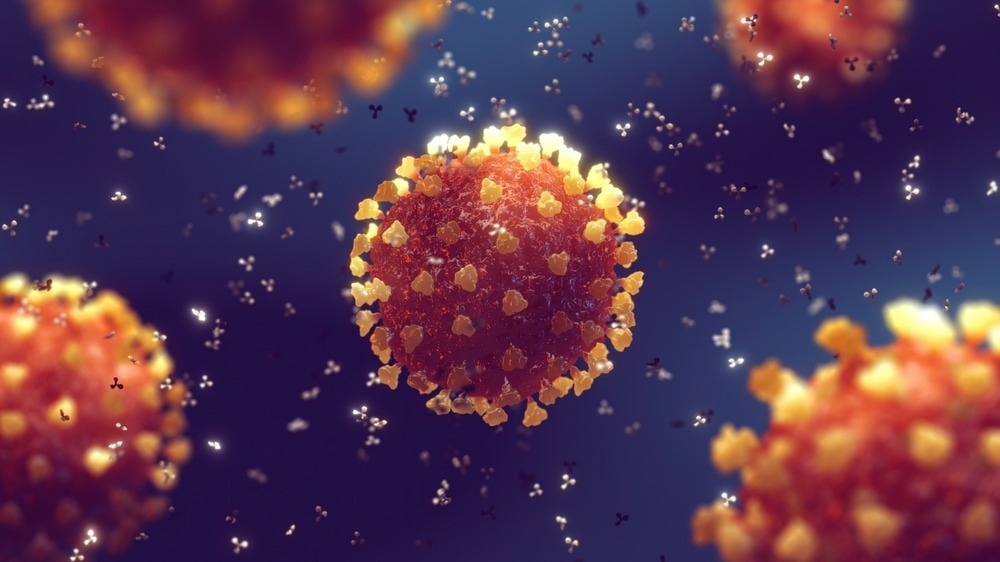In a recent study published in JAMA Network Open, researchers investigated the association of symptoms after coronavirus disease 2019 (COVID-19) vaccination with antibody responses against severe acute respiratory syndrome coronavirus 2 (SARS-CoV-2).
 Study: Association of Symptoms After COVID-19 Vaccination With Anti–SARS-CoV-2 Antibody Response in the Framingham Heart Study. Image Credit: nobeastsofierce/Shuterstock
Study: Association of Symptoms After COVID-19 Vaccination With Anti–SARS-CoV-2 Antibody Response in the Framingham Heart Study. Image Credit: nobeastsofierce/Shuterstock
Background
SARS-CoV-2 mRNA vaccines, such as Pfizer-BioNTech’s BNT162b2 and Moderna’s mRNA-1273, are associated with systemic and local symptoms. However, whether post-vaccination symptoms are related to vaccination-induced antibody responses remains unclear. Prior studies on COVID-19 vaccine immunogenicity and reactogenicity were restricted to convenience samples limiting their generalizability.
The study and findings
In the present study, researchers evaluated the associations between post-vaccination symptoms and antibody responses against SARS-CoV-2 among participants of the Framingham Heart Study (FHS), contributing to the Collaborative Cohort of Cohorts for COVID-19 Research (C4R). Participants were invited in February 2021 to administer C4R questionnaires on SARS-CoV-2 vaccination and associated symptoms.
Subjects also provided a dried blood spot (DBS) to test for antibodies against SARS-CoV-2. FHS participants who received two doses of the COVID-19 mRNA vaccine two weeks before DBS collection were included in the analysis. Post-vaccination symptoms were categorized as local or systemic.
Local symptoms were pain/rash at the injection site, and systemic symptoms were fever, nausea, chills, vomiting, muscle pain, headache, and fatigue. Anti-SARS-CoV-2 immunoglobulin G (IgG) antibodies were quantified using microsphere immunoassay. Associations between post-vaccination symptoms and antibody responses were evaluated using chi-squared tests and multivariable linear regression.
Analyses were adjusted for clinical and sociodemographic characteristics and time since vaccination. Of over 3200 participants eligible for C4R, 928 completed the questionnaire and DBS collection. Of these, 55% received the mRNA-1273 vaccine, and 45% received the BNT162b2 vaccine. The average age of the participants was 65 years, and most were female (61%) and non-Hispanic White (96%).
Eighty-four participants self-reported previous COVID-19 infection. Around 48% of participants experienced systemic symptoms, 109 reported local symptoms, and 373 were asymptomatic after either vaccine dose. Bivariate analyses indicated an association of symptoms with female sex, younger age, mRNA-1273 vaccine, and past COVID-19.
Antibody reactivity was noted in 98% of asymptomatic individuals and 99% of participants with systemic or local symptoms. There was an association between systemic symptoms and greater antibody response in adjusted models. Results were similar when analyses were repeated after excluding individuals with past COVID-19.
Conclusions
The study found that self-reported post-vaccination systemic symptoms were associated with greater anti-SARS-CoV-2 antibody responses. These findings concord with a report on United States healthcare workers, which revealed higher post-vaccination antibody responses among those with symptoms after receiving an mRNA vaccine.
The authors identified mRNA-1273 vaccine, age, and sex as factors associated with vaccine immunogenicity and reactogenicity. Comorbidities, body mass index, and race/ethnicity were not associated with post-vaccination symptoms. Almost all participants showed positive antibody responses upon receiving the double-dose mRNA vaccines.
Still, systemic symptoms were associated with greater antibody responses in multivariable models, underscoring the interpersonal variability. Future studies must explore the biological mechanisms underlying vaccine response heterogeneity. Overall, these findings emphasize reframing post-vaccination symptoms as indicators of vaccine efficacy and reinforcing guidance for vaccine boosters.